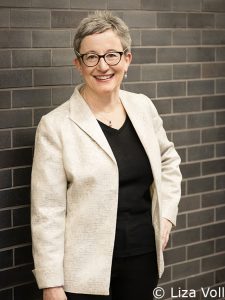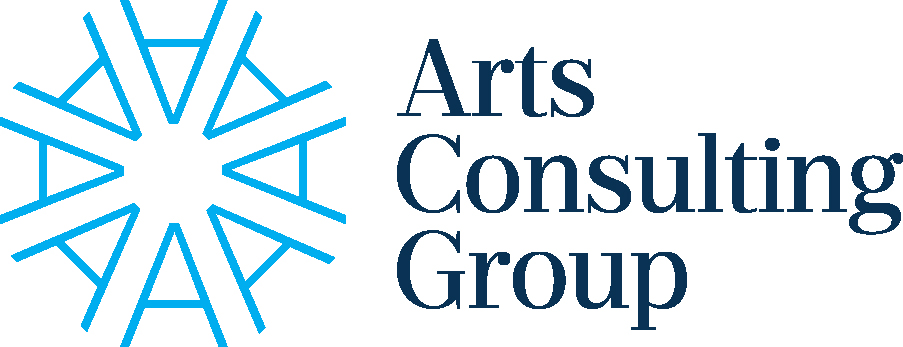Three Reasons to Prioritize Board Education
Rebekah Lambert, Senior Vice President
“There are times in meetings when I don’t know the history. Decisions get made based on what’s been done; when you don’t have that knowledge, that’s difficult.”
- A Symphony Orchestra Board Member
“We don’t have a focus on the groups we fund. There’s little time spent talking and learning about the area in which we spend 95 percent of our money.”
- An Arts Service Organization Board Member
Time and time again, the board members of arts and culture nonprofit organizations confess that they do not have the tools and knowledge needed to be effective board members. Perhaps they are not sure how to read the organization’s financial statements. Maybe they do not understand the complexities, history, and strategic import of an agreement with a landlord, a primary workforce union, or a partner organization. They may be unaware of the wants and needs of the audience or changes in community demographics or socioeconomics that may affect their organization.
Whatever the reasons, board members are looking for ongoing education and professional development to better fulfill their fiduciary and governance role. In this edition of Arts Insights, we will explore why board education is an ongoing critical need for arts and culture organizations, set forth three reasons to make it a priority, and provide a few suggestions to raise the bar on board education.
The Need for Board Education
In April 2017 Arts Consulting Group (ACG) distributed and administered an online board governance and planning survey, receiving 160 responses from arts and culture organization executives and board members throughout North America. Rating their effectiveness in trustee ongoing education, only 16 percent of respondents reported that they were extremely or very effective at this aspect of board development, while 50 percent reported that they were slightly or not at all effective.
This is confirmed in the work that ACG does directly with boards of directors. In self-assessment surveys administered over the past two years, 86 percent of boards of directors disagreed or strongly disagreed with the statement: The board allocates time and resources for board continuing education opportunities, such as guest speakers, retreats, visits with other boards, and attendance at pertinent conferences. Following a discussion of the self-assessment results, many boards recognize this need and set goals to prioritize increased board education. BoardSource recognizes board education as an ongoing need as well. Its January 2015 publication “Leading with Intent: A National Index of Nonprofit Best Practices” described board education as an “overlooked and underused” practice.[1]
Make Board Education a CriticalPriority
When thought of in terms of key board responsibilities and building a strong board culture, board education emerges as a priority. Arts and culture organizations should consider the following reasons to prioritize board education.
1. Boards require and desire ongoing education to ably fulfill their responsibilities of ensuring the organization’s strategic direction, adequate resources, and necessary oversight.
In Nonprofit Quarterly’s recently republished article, “Problem Boards or Board Problem?” the authors point out that it is “hard to govern at arm’s length from the organization and without first-hand knowledge of the ‘business.’” They further ask, “How can a board develop strategy without direct contact with the operational realities of the organization – which is precisely where new strategies and ideas often emerge and are invariably validated or discredited? How can a board evaluate the performance of an organization without some direct knowledge of the enterprise?”[2] Put another way, “Leading with Intent” reminds us that “continuous – and collective – learning opportunities help deepen board member understanding of the organization and the environment in which it operates.”
2. Informed board members are more confident and effective in their community ambassador role.
“We want to know what is going on behind the scenes and the services our theater is offering, so we can be better advocates [and] do more out in the community.”
- A Theater Company Board Member
“Leading with Intent” reports that, “60 percent of chief executives identify fundraising as the area most in need of board improvement, followed by ambassadorship at 41 percent.” A thoughtful board education program develops the capacity for board members to speak persuasively and passionately about their organization’s mission. Knowledgeable board members can talk about programs, community needs, outcomes, and emerging priorities. They are also more likely to be successful in their fundraising and advocacy responsibilities.
3. Board education strengthens board culture and camaraderie.
In Team of Teams: New Rules of Engagement for a Complex World, Stanley McChrystal writes that, “teams whose members know one another deeply perform better.” He describes team building as being “all about horizontal connectivity” and asserts that, “the connectivity of trust and purpose imbues teams with an ability to solve problems.”[3] Board education, specifically learning together, builds a sense of common purpose and mission among trustees and staff. It also encourages a culture of inquiry, listening, curiosity, and open-mindedness – characteristics that are invaluable as nonprofit boards govern in a complex and ever-changing environment.
Recommendations for Effective Board Education
Board education is a shared responsibility of not only the organization but also the individual board member. Both should review the following tips to implement an effective board education program.
Nonprofit Organizations
An effective board education program fits within the overall board development program. Board orientation should be followed by ongoing education. A regular board self-assessment process identifies areas of weakness and topics for training. Board evaluation should follow accordingly. To begin or to strengthen an organization’s existing board education program, consider the following actions.
- Assign responsibility and accountability for board education. In many cases, this may fall within the purview of an organization’s Governance Committee. That committee should set a program of board education, reviewing results of board self-assessment surveys, polling board members and senior staff on potential topics, and ensuring that board education remains a priority.
- Make board education a regular topic on board meeting agendas. Set aside 15 minutes at every meeting or conduct a deeper dive quarterly. While board education topics may stand on their own, they may also be embedded in other agenda items. For example, finance updates may periodically include extra time during which board members can receive training on how to better understand organizational financial statements.
- Be creative. Board education can take many forms. Invite an artist or a conservator to a board meeting to talk about their work. Have meetings in different places such as backstage or in a collections storage space. By surprising board members, they are likely to learn and retain more.[4]
- Be generous. The investment in board education may, at times, be relevant to other organizations in the community. Put together a panel of arts educators and invite board members of other arts and culture organizations to attend and participate in the meeting and discussions. The learning will expand exponentially as board members make connections across organizations and disciplines.
Individual Board Members
Joining the board of an arts and culture organization requires taking on significant level of responsibility. To be a good board member, one must be inspired by and engaged in the organization, its mission, and the community it serves. While the organization has a responsibility for training and education, so does the individual board member. The following recommendations are just a few ways to be a proactive board member.
- Get to know your arts and culture industry colleagues. Many arts and culture organizations are members of national associations such as the League of American Orchestras or American Alliance of Museums. These organizations provide learning opportunities for board members, including sessions at national conferences and online peer discussion groups.
- Understand nonprofits. There are ample local and regional opportunities available for board education, often more broadly targeted to the nonprofit sector. Many of these excellent programs are available at low or no cost. Check with a community foundation or local arts council to find what is accessible.
- Visit other arts and culture organizations. Museum board members should visit other museums. Board members of a children’s chorus may want to attend an upcoming youth symphony performance. Learn from other organizations doing good work in the field.
- Subscribe to ACG’s Arts Insights newsletter and similar free publications focused on building leadership capacity in the arts and culture sector.
Throughout the nonprofit arts and culture industry, frustration is expressed about underperforming boards, boards that do not understand their role, and board members who do not fulfill their responsibilities. Perhaps the sector, the organizations, and the individual board members collectively need to recognize that being an engaged board member on an effective board of directors is a difficult job. Ongoing board education must be made a priority as it can have a tremendous impact on not only the board and the organization but on the community at large as well.
[1] BoardSource, “Leading with Intent: A National Index of Nonprofit Board Practices,” (2015).
[2] William P. Ryan, Richard P. Chait, and Barbara E. Taylor, Nonprofit Quarterly, “Problem Boards or Board Problem,” (May 8, 2017), https://nonprofitquarterly.org/2017/05/08/problem-boards-or-board-problem/.
[3] Stanley McChrystal, Team of Teams: New Roles of Engagement in a Complex World, (Penguin Publishing Group, 2015), 97-98, 114.
[4] Daniela Fenker and Hartmut Schûtze, Scientific American, “Learning by Surprise,” (December 17, 2008), https://www.scientificamerican.com/article/learning-by-surprise/.
 Rebekah Lambert, Senior Vice President
Rebekah Lambert, Senior Vice President
Ms. Lambert joined ACG in November 2009 with more than 19 years of experience in performing arts management, planning, board development, policy formulation, union negotiations, artistic administration, operations, and program planning. Over the course of her varied career, she has proven herself to be a thoughtful, creative, and flexible leader. Ms. Lambert began her career in arts management with positions at the Los Angeles Philharmonic and the Young Musicians Foundation. After completing the prestigious League of American Orchestra's Orchestra Management Fellowship, she held positions with the Honolulu Symphony Orchestra and Symphony of Southeast Texas. From 1996 to 2003, Ms. Lambert served as Executive Director of the Eugene Symphony, where she completed eight concert seasons with surpluses and doubled the orchestra's endowment fund. During her tenure, the orchestra experienced unprecedented stability and artistic growth. Ms. Lambert also served on the board of directors of the League of American Orchestras and as faculty of the Orchestra Leadership Academy. Ms. Lambert holds a bachelor of music degree from the University of California, Santa Barbara, master of business administration from the Yale School of Organization and Management, and strategic management certificate from The George Washington University and Strategy Management Group. Ms. Lambert is a certified Strategic Management Professional and currently serves as President of the board of directors of ShelterCare, an Oregon-based housing and human services organization.
Contact ACG for more information on how we can help your organization
strengthen its board education and development program.
(888) 234.4236
info@ArtsConsulting.com
ArtsConsulting.com
Click here for the downloadable PDF.
